What does it take to answer the call? Jacksonville seeks 911 communications officers
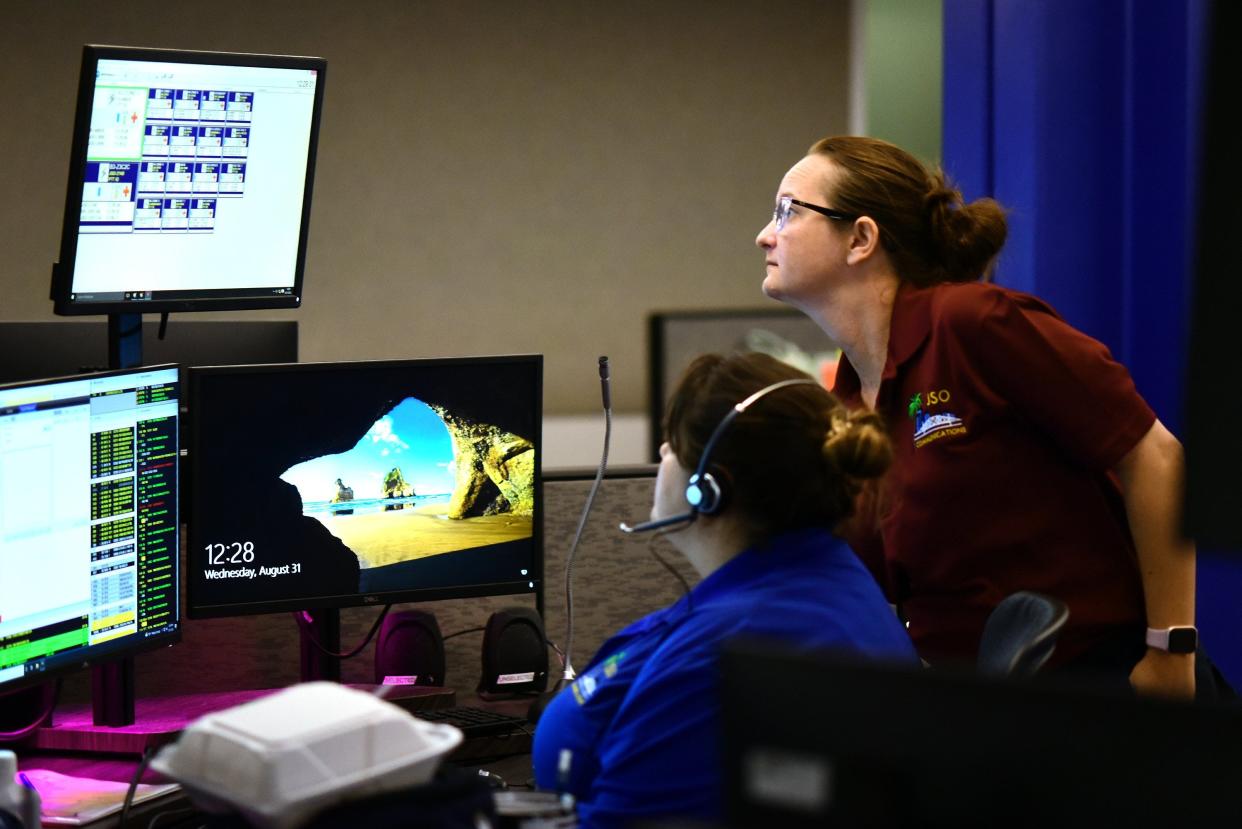
The calls made to the 18 police emergency communications officers inside the Jacksonville Sheriff's Office can range from quiet to riot.
Just ask 911 Supervisor Jacky Middleton, nine years under her belt answering calls that go from routine to some so painful her face still clouds with emotion to think about them.
One was a child calling for help, handled by the trainee she was working with so she could only watch — and listen.
"This happened to a child who had seen their mother commit suicide. That was very hard for me. There were no other adults there with the child," Middleton said. "... When you have to sit there and talk to this child and you have to keep them calm, those are the ones that get you."
'Don't die on me, I need you!': 911 calls offer no reason why St. Johns man shot his neighbor, then himself
78-year-old woman dead: 2 young grandchildren critical after Jacksonville house fire
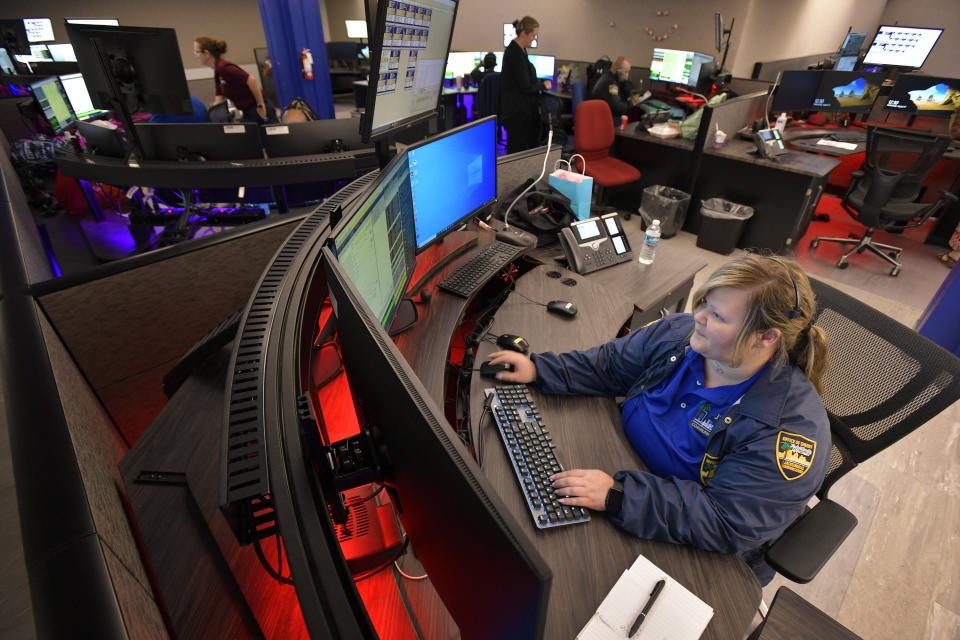
It's a job that can weigh heavily on the dispatchers she is in charge of, Assistant Chief Erica Weber said.
"It's very stressful. There's a lot going on at the dispatch terminals themselves. There's a lot of responsibility," Weber said. "There's a lot of care taken by our dispatchers to make sure we are doing the right thing for our citizens and getting the calls out as quickly as we can. Also for our officers, who sometimes need a lightning-fast response and making sure they are getting help out to people quickly, but also getting calls answered in a timely fashion."
These men and women handle about 4,000 calls a day, working with four big screens displaying available officers, the status of other agencies, city maps and updates on assigned calls and more.
But despite lots of initial interest from people who attend the Sheriff's Office's virtual job fairs for 911 operator positions, the agency still has about 30 slots open to be the first person a victim or witness reaches out to when there's a shooting, car crash, fire or worse.
The trail of a 911 call
Place an emergency call to 911 or a non-emergency call to (904) 630-0500, and a police emergency communications officers will answer. Their official job titles are PECO I and PECO II.
The first takes the information and passes it on to the agency that can help, including about 11,000 calls a month to the Jacksonville Fire and Rescue Department, plus police departments at the beach cities. The second takes the information, then gives it a priority level as it is dispatched to the officer who can head there to help.
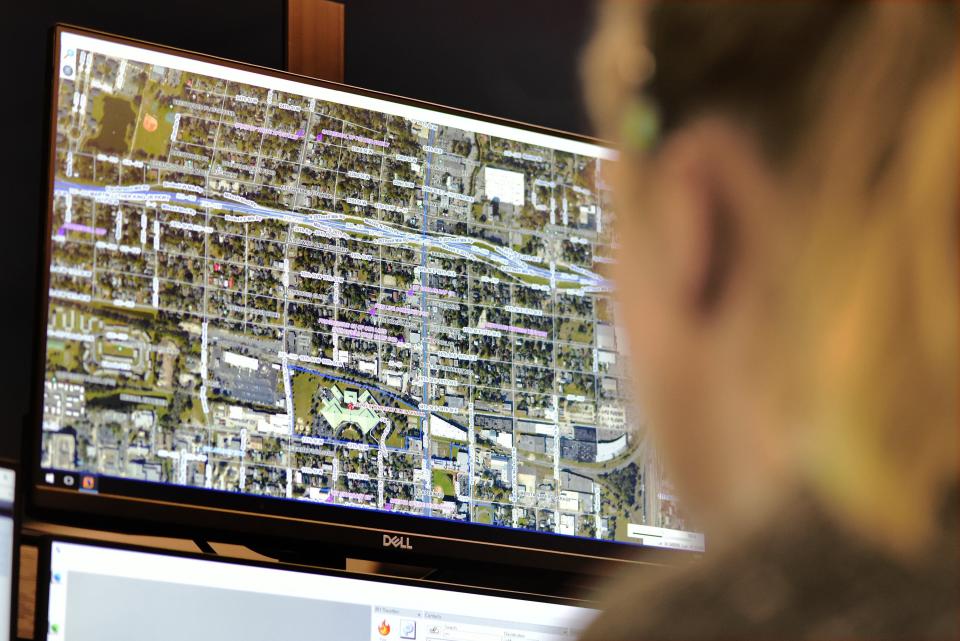
"It's busy all the time," Middleton said. "You never know what's going to be on the other end of that phone call. It could be a stray dog, or it could be, 'Hey, my brother just got shot!' You never know, and there's no typical day."
There should be 143 people working day and night shifts total in the second-floor communications center at the Sheriff's Office. But the vacancies mean Weber, with 16 years on the force, has clipped on a headset a time or two to handle calls.
"Sometimes they call and they are very calm, and sometimes they call and it is the exact opposite," Weber said. "... We try to be as professional and straightforward as we can with everybody, but people respond differently."
More sought to answer the call
The Sheriff's Office conducts monthly virtual job fairs to seek candidates for the PECO II position, with 87 registered for one that took place Aug. 31.
Those who watched the job fair heard from current employees and the agency's civilian recruiter, and could ask questions. They also learned that the starting salary is $44,000 annually, with a 5% increase after a year of probation. That pay was increased by $5,000 earlier this year to get more job candidates.
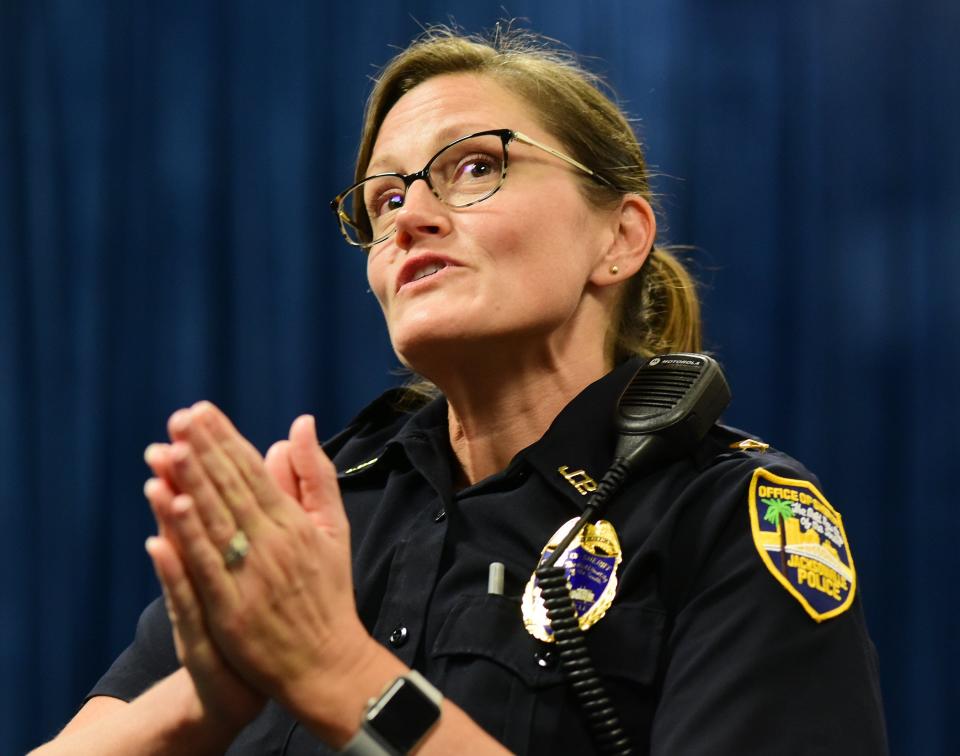
"We are looking for people who are patient, who can think critically through information," Weber said. "... I need someone who can think rationally about what they are being told so we can plug it into the appropriate fields so it gets to the dispatch side so we get them help."
"It's not an easy job. You are not scanning groceries, no disrespect to Publix, which is where I started," Weber said. "... They are not generally calling to say my kid got straight A's; they are calling because something really bad happened. It's a difficult position and I need people who are willing to work through that with our callers and our officers."
"Anytime anyone calls 911, it could be three minutes before we get there, but it seems like it's 20," Middleton added. "... When someone's screaming hysterically that someone's been shot, you are just in the moment. And when you are doing it by yourself, it's fight or flight."
New ways to communicate: Jacksonville Sheriff's Office works with those who are hard of hearing
First responders' job stress: Focus of mental health campaign involving Jacksonville groups
That includes the ability to handle emotional calls and "keep their own mental health," then come back and do it again, Weber said. They have support from co-workers as well as employee assistance and Critical Incident Stress Management support services.
"Peer-to-peer within the com center is huge. I may sit at my terminal, shake my head and put it in my hands," Weber said. "Instantly someone shows up to say, 'Hey, are you OK?' Everybody recognizes the mental anguish and heartstrings that will be tugged on, and all acutely aware of what the next person is going through because they sat in that seat."
More information on PECOs is at jaxsheriff.org/Careers/Communications.aspx.
Working without computers
While the technology is usually there to track calls, inform them what troopers, firefighters and police are doing, PECOs recently had to get the job done under even more difficult circumstances.
On Aug. 8 the city's new cyber security detection software detected "suspicious activity from an outside server," city officials said.
New Jacksonville fire department position: Focusing on prevention and smoke-detector program
It was not a ransomware attack, they said. But the city quickly disabled the account as it implemented precautionary measures. That meant the Sheriff’s Office separated its computer servers from the city network, blocking outside internet access as internal systems continued to communicate.
So to get basic information from callers to cops, PECOs took a trip back in time — walking to dispatchers with what the caller told them, Weber said.
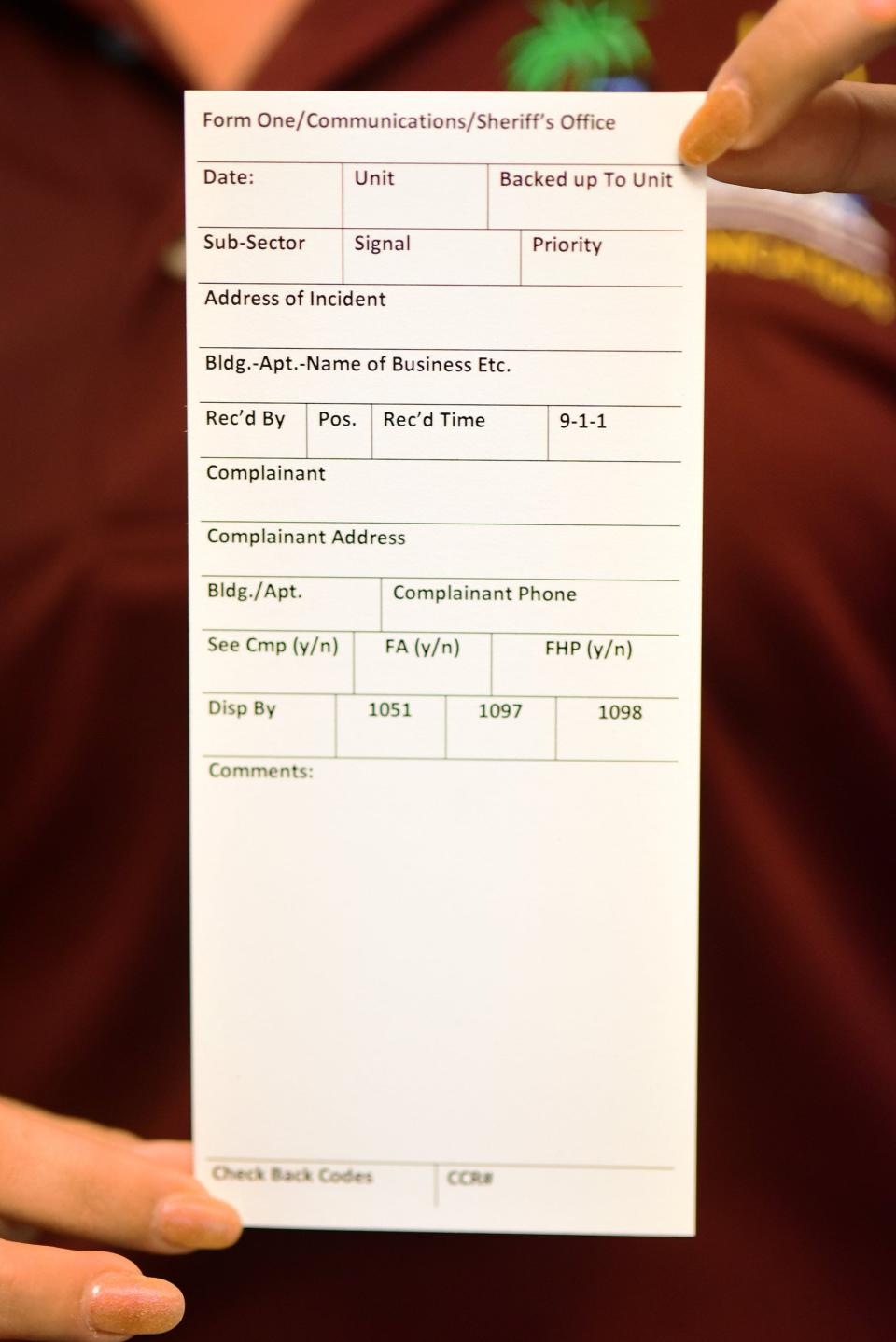
"We have a policy in place that takes us to paper cards," she said, holding one up. "This is not the first time we have not been able to access the computer and unable to use regular systems. There has been a system in place since at least 2016 to refer back to cards, get the job done and still be available to our citizens and officers."
"It doesn't happen a lot," Middleton added. "... Everybody in there, whether you like each other or not, they always come together and work as a team. And when things are hard, that's when they are at their best."
dscanlan@jacksonville.com, (904) 359-4549
This article originally appeared on Florida Times-Union: Life of a 911 operator: Jacksonville needs more emergency dispatchers

